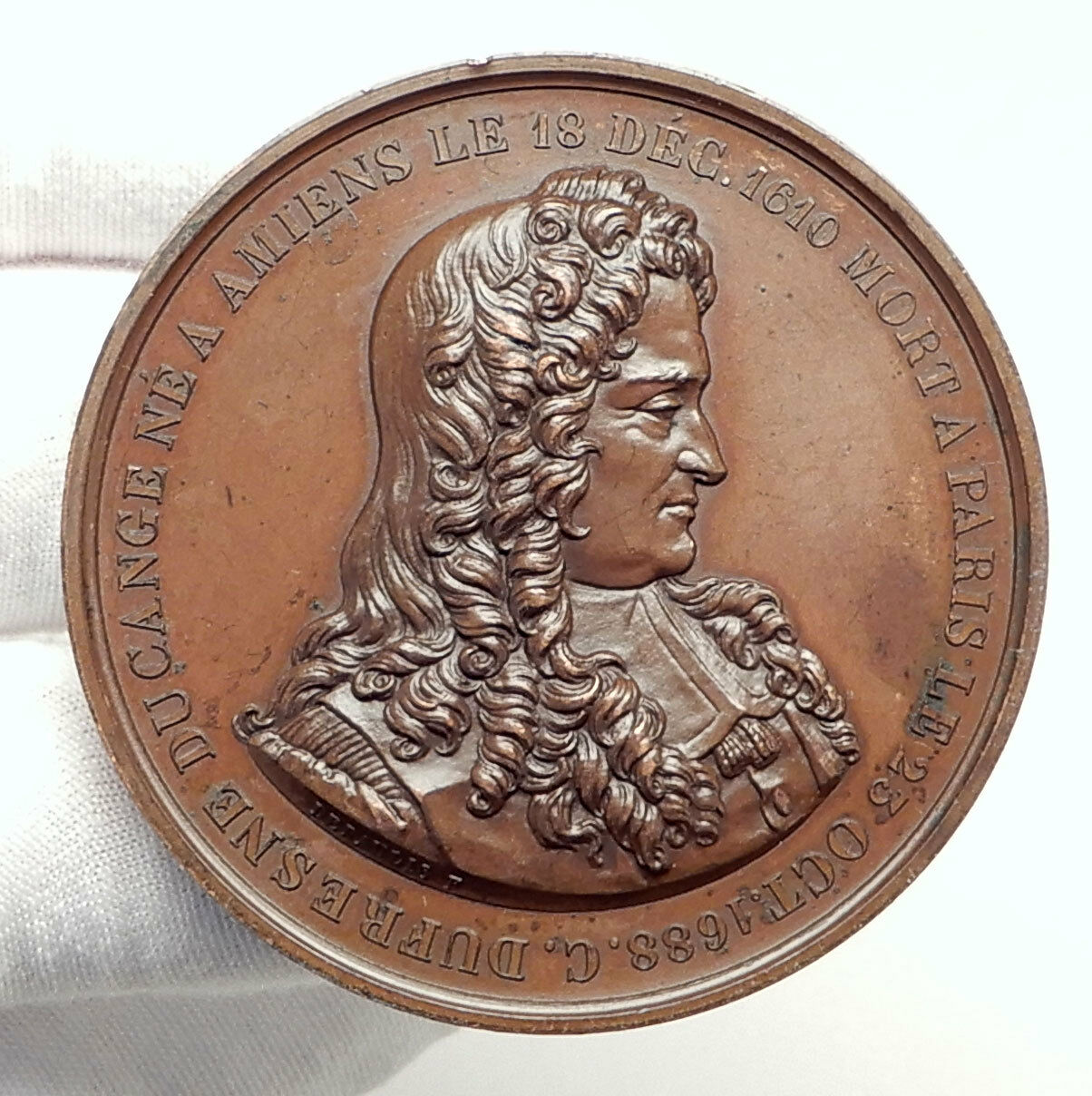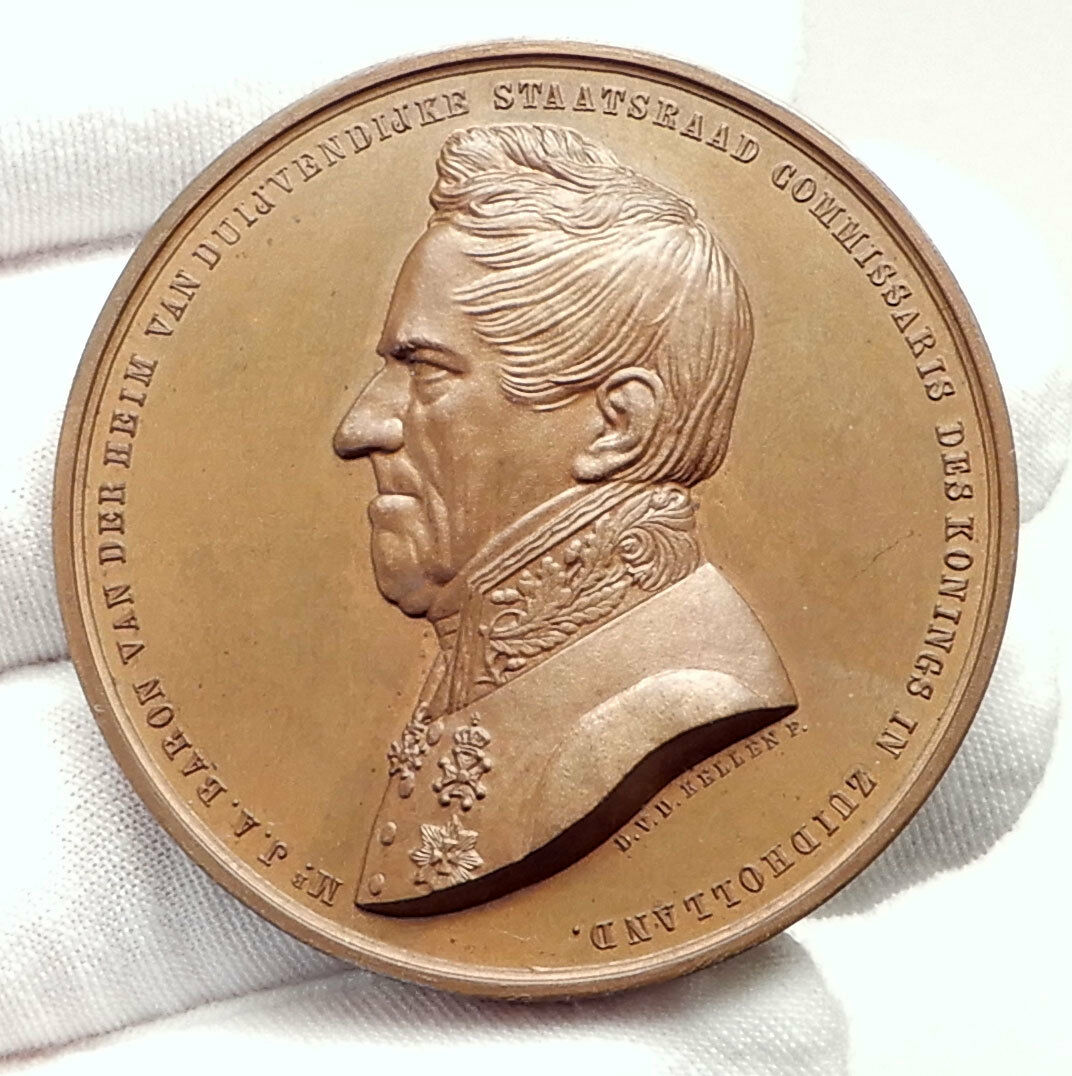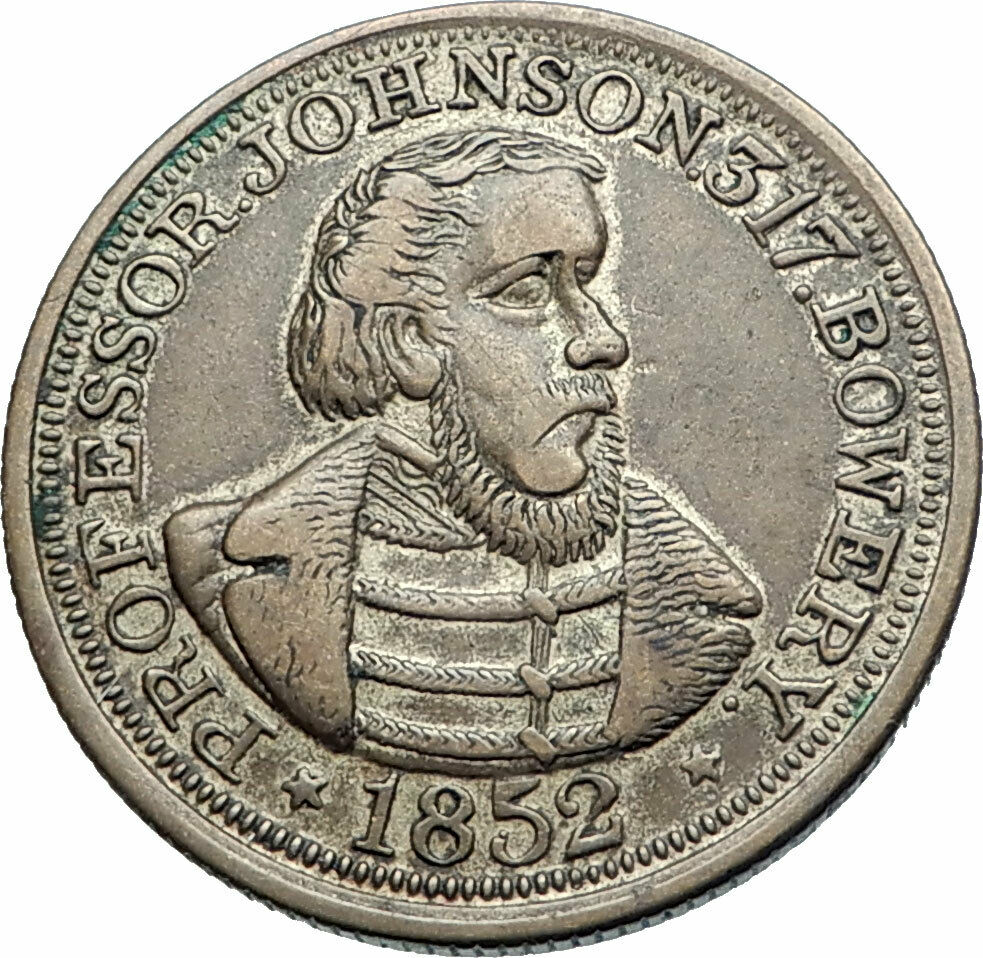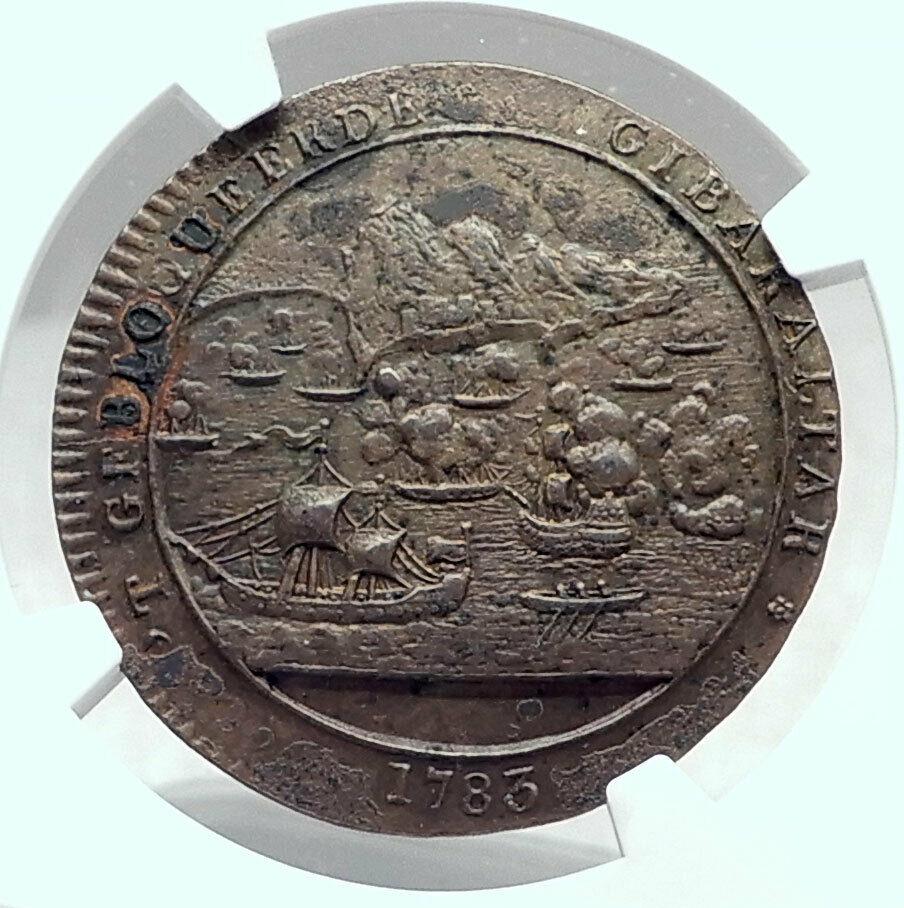|
Switzerland – Alberich Zwyssig of Bauen
Composer of Swiss National Anthem (Swiss Psalm) (German: Schweizerpsalm)
1899 Silver Medal 45mm (39.7 grams) by Hans Frei
Pedigree / Provenace: Ex Schulman Gallery
Bust of Bauen left.
Man kneeling in prayer before Swiss mountain with sun climbing over it; beginning phrase of the Swiss Psam (national anthem) to left, “Trittst im Morgenrot daher, Seh ich dich im Strahlenmeer”.
Edge stamp: ARGENT
You are bidding on the exact item pictured, provided with a Certificate of Authenticity and Lifetime Guarantee of Authenticity.
The Swiss Psalm (Schweizerpsalm) is the national anthem of Switzerland. It was composed in 1841, by Alberich Zwyssig (1808-1854). Since then, it has been frequently sung at patriotic events. The Federal Council declined however on numerous occasions to accept the psalm as the official anthem. This was because the council wanted the people to express their say on what they wanted as a national anthem. From 1961 to 1981 it provisionally replaced Rufst du, mein Vaterland (“When You Call, My Country”, French Ô monts indépendants; Italian Ci chiami o patria, Romansh E clomas, tger paeis), the anthem by Johann Rudolf Wyss (1743-1818) which was set to the melody of God Save the Queen. On 1 April 1981, the Swiss Psalm was declared the official Swiss national anthem.
In 2014/2015, the Société suisse d’utilité publique organized a public competition and unofficial vote to change the lyrics of the national anthem.
German (original)
Trittst im Morgenrot daher,
Seh ich dich im Strahlenmeer,
Dich, du Hocherhabener, Herrlicher!
Wenn der Alpenfirn sich rötet,
Betet, freie Schweizer, betet,
Eure fromme Seele ahnt,
Eure fromme Seele ahnt,
Gott im hehren Vaterland!
Gott, den Herrn, im hehren Vaterland!
Kommst im Abendglühn daher,
Find ich dich im Sternenheer,
Dich, du Menschenfreundlicher, Liebender!
In des Himmels lichten Räumen
Kann ich froh und selig träumen;
Denn die fromme Seele ahnt
Denn die fromme Seele ahnt
Gott im hehren Vaterland!
Gott, den Herrn, im hehren Vaterland!
Ziehst im Nebelflor daher,
Such ich dich im Wolkenmeer,
Dich, du Unergründlicher, Ewiger!
Aus dem grauen Luftgebilde
Bricht die Sonne klar und milde,
Und die fromme Seele ahnt
Und die fromme Seele ahnt
Gott im hehren Vaterland!
Gott, den Herrn, im hehren Vaterland!
Fährst im wilden Sturm daher,
Bist du selbst uns Hort und Wehr,
Du, allmächtig Waltender, Rettender!
In Gewitternacht und Grauen
Lasst uns kindlich ihm vertrauen!
Ja, die fromme Seele ahnt
Ja, die fromme Seele ahnt
Gott im hehren Vaterland!
Gott, den Herrn, im hehren Vaterland!
 Father Alberich or Alberik Zwyssig (17 November 1808 – 18 November 1854) was a Cistercian monk who composed in 1841 the Swiss Psalm, the present Swiss national anthem. Father Alberich or Alberik Zwyssig (17 November 1808 – 18 November 1854) was a Cistercian monk who composed in 1841 the Swiss Psalm, the present Swiss national anthem.
Johann Josef Maria Zwyssig (he took the name “Alberich” later as his name in religion) was born in 1808 in Bauen, Canton of Uri. From 1821 to 1841 he lived in Wettingen Abbey, first as a choir boy and pupil in the monastery school, and later as a monk and priest. He was also a teacher, secretary to the abbot and choirmaster.
After the dissolution of the abbey by the Grand Council of the Canton of Aargau on 13 January 1841 the monks wandered from place to place for several years. After the Sonderbundskrieg Zwyssig spent six years as a guest in Wurmsbach Abbey at Jona on Lake Zürich. He was in charge of teaching music at their newly founded daughter institute, and wrote many compositions both religious and secular. In 1854 the wandering monks at last came to Vorarlberg on 8 June 1854 the former monastery at Mehrerau in Bregenz, which had been secularised in 1806 by the Bavarian state, was re-founded as a Cistercian monastery by Abbot Leopold Hoechle from Wettingen with seven priests and three brothers. Zwyssig participated in the new foundation as a cantor but died there within a few months, on 18 November 1854.
.svg/85px-Coat_of_Arms_of_Switzerland_(Pantone).svg.png) 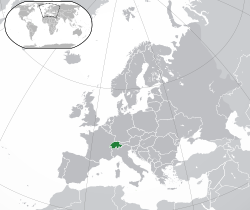 Switzerland, officially the Swiss Confederation (Latin: Confoederatio Helvetica, hence its abbreviation CH), is a federal parliamentary republic consisting of 26 cantons, with Bern as the seat of the federal authorities, the so-called Bundesstadt (“federal city”). The country is situated in Western and Central Europe, where it is bordered by Italy to the south, France to the west, Germany to the north, and Austria and Liechtenstein to the east. Switzerland is a landlocked country geographically divided between the Alps, the Swiss Plateau and the Jura, spanning an area of 41,285 km2 (15,940 sq mi). While the Alps occupy the greater part of the territory, the Swiss population of approximately 8 million people is concentrated mostly on the Plateau, where the largest cities are to be found. Among them are the two global cities and economic centres of Zürich and Geneva. Switzerland, officially the Swiss Confederation (Latin: Confoederatio Helvetica, hence its abbreviation CH), is a federal parliamentary republic consisting of 26 cantons, with Bern as the seat of the federal authorities, the so-called Bundesstadt (“federal city”). The country is situated in Western and Central Europe, where it is bordered by Italy to the south, France to the west, Germany to the north, and Austria and Liechtenstein to the east. Switzerland is a landlocked country geographically divided between the Alps, the Swiss Plateau and the Jura, spanning an area of 41,285 km2 (15,940 sq mi). While the Alps occupy the greater part of the territory, the Swiss population of approximately 8 million people is concentrated mostly on the Plateau, where the largest cities are to be found. Among them are the two global cities and economic centres of Zürich and Geneva.
The establishment of the Swiss Confederation is traditionally dated to 1 August 1291, which is celebrated annually as Swiss National Day. It has a long history of armed neutrality-it has not been in a state of war internationally since 1815-and did not join the United Nations until 2002. It pursues, however, an active foreign policy and is frequently involved in peace-building processes around the world. Switzerland is also the birthplace of the Red Cross and home to numerous international organizations, including the second largest UN office. On the European level, it is a founding member of the European Free Trade Association and is part of the Schengen Area – although it is notably not a member of the European Union, nor the European Economic Area. Switzerland comprises four main linguistic and cultural regions: German, French, Italian and the Romansh-speaking valleys. Therefore, the Swiss, although predominantly German-speaking, do not form a nation in the sense of a common ethnic or linguistic identity; rather, the strong sense of identity and community is founded on a common historical background, shared values such as federalism and direct democracy, and Alpine symbolism.
Switzerland has the highest nominal wealth per adult (financial and non-financial assets) in the world according to Credit Suisse and eighth-highest per capita gross domestic product on the IMF list. However, Switzerland is also the most expensive country in the world to live in, as measured by the price level index.
Swiss citizens have the second-highest life expectancy in the world on the UN DESA list. Switzerland is tied with the Netherlands for the top rank on the Bribe Payers Index indicating very low levels of business corruption. Moreover, for the last five years the country has been ranked first in economic and tourist competitiveness according to the Global Competitiveness Report and the Travel and Tourism Competitiveness Report respectively, both developed by the World Economic Forum. Zürich and Geneva have each been ranked among the top cities with the highest quality of life in the world, with the former coming second globally according to Mercer. However, Mercer also rates those two cities as the fifth- and sixth- most expensive cities in the world to live in.
|





 Father Alberich or Alberik Zwyssig (17 November 1808 – 18 November 1854) was a Cistercian monk who composed in 1841 the Swiss Psalm, the present Swiss national anthem.
Father Alberich or Alberik Zwyssig (17 November 1808 – 18 November 1854) was a Cistercian monk who composed in 1841 the Swiss Psalm, the present Swiss national anthem. .svg/85px-Coat_of_Arms_of_Switzerland_(Pantone).svg.png)
 Switzerland, officially the Swiss Confederation (Latin: Confoederatio Helvetica, hence its abbreviation CH), is a federal parliamentary republic consisting of 26 cantons, with Bern as the seat of the federal authorities, the so-called Bundesstadt (“federal city”). The country is situated in Western and Central Europe, where it is bordered by Italy to the south, France to the west, Germany to the north, and Austria and Liechtenstein to the east. Switzerland is a landlocked country geographically divided between the Alps, the Swiss Plateau and the Jura, spanning an area of 41,285 km2 (15,940 sq mi). While the Alps occupy the greater part of the territory, the Swiss population of approximately 8 million people is concentrated mostly on the Plateau, where the largest cities are to be found. Among them are the two global cities and economic centres of Zürich and Geneva.
Switzerland, officially the Swiss Confederation (Latin: Confoederatio Helvetica, hence its abbreviation CH), is a federal parliamentary republic consisting of 26 cantons, with Bern as the seat of the federal authorities, the so-called Bundesstadt (“federal city”). The country is situated in Western and Central Europe, where it is bordered by Italy to the south, France to the west, Germany to the north, and Austria and Liechtenstein to the east. Switzerland is a landlocked country geographically divided between the Alps, the Swiss Plateau and the Jura, spanning an area of 41,285 km2 (15,940 sq mi). While the Alps occupy the greater part of the territory, the Swiss population of approximately 8 million people is concentrated mostly on the Plateau, where the largest cities are to be found. Among them are the two global cities and economic centres of Zürich and Geneva.

